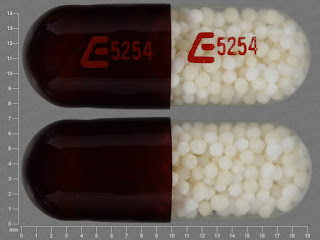Vicodin
What is Vicodin?
Vicodin contains a combination of acetaminophen and hydrocodone. Hydrocodone is an opioid pain medication. An opioid is sometimes called a narcotic. Acetaminophen is a less potent pain reliever that increases the effects of hydrocodone.
Vicodin tablets are used for the relief of moderate to moderately severe pain.
Vicodin may also be used for purposes not listed in this medication guide.
Warnings
Hydrocodone can slow or stop your breathing. Never use this medicine in larger amounts, or for longer than prescribed. Narcotic pain medicine may be habit-forming, even at regular doses. Never share Vicodin with another person, especially someone with a history of drug abuse or addiction. Keep the medication in a place where others cannot get to it.
MISUSE OF NARCOTIC MEDICINE CAN CAUSE ADDICTION, OVERDOSE, OR DEATH, especially in a child or other person using the medicine without a prescription.
Do not use Vicodin if you have used a MAO inhibitor in the past 14 days, such as isocarboxazid, linezolid, methylene blue injection, phenelzine, rasagiline, selegiline, or tranylcypromine.
Do not take more of Vicodin than is recommended. An overdose of acetaminophen can damage your liver or cause death. Call your doctor at once if you have nausea, pain in your upper stomach, itching, loss of appetite, dark urine, clay-colored stools, or jaundice (yellowing of your skin or eyes).
Stop taking Vicodin and call your doctor right away if you have skin redness or a rash that spreads and causes blistering and peeling.
Before taking this medicine
You should not use Vicodin if you are allergic to acetaminophen (Tylenol) or hydrocodone, or if you have recently used alcohol, sedatives, tranquilizers, or other narcotic medications.
Do not use this medicine if you have taken a MAO inhibitor in the past 14 days. A dangerous drug interaction could occur. MAO inhibitors include isocarboxazid, linezolid, phenelzine, rasagiline, selegiline, and tranylcypromine.
Some medicines can interact with hydrocodone and cause a serious condition called serotonin syndrome. Be sure your doctor knows if you also take medicine for depression, mental illness, Parkinson's disease, migraine headaches, serious infections, or prevention of nausea and vomiting. Ask your doctor before making any changes in how or when you take your medications.
You should not use Vicodin if you have:
severe asthma or breathing problems; or
a blockage in your stomach or intestines.
To make sure Vicodin is safe for you, tell your doctor if you have ever had:
breathing problems, sleep apnea (breathing stops during sleep);
liver disease;
a drug or alcohol addiction;
kidney disease;
a head injury or seizures;
urination problems; or
problems with your thyroid, pancreas, or gallbladder.
Vicodin is more likely to cause breathing problems in older adults and people who are severely ill, malnourished, or otherwise debilitated.
If you use narcotic medicine while you are pregnant, your baby could become dependent on the drug. This can cause life-threatening withdrawal symptoms in the baby after it is born. Babies born dependent on habit-forming medicine may need medical treatment for several weeks. Tell your doctor if you are pregnant or plan to become pregnant.
Ask a doctor before using opioid medicine if you are breastfeeding. Tell your doctor if you notice severe drowsiness or slow breathing in the nursing baby.
How should I take Vicodin?
Take Vicodin exactly as prescribed. Follow all directions on your prescription label. Never take this medicine in larger amounts, or for longer than prescribed. An overdose can damage your liver or cause death. Tell your doctor if the medicine seems to stop working as well in relieving your pain.
Hydrocodone may be habit-forming, even at regular doses. Never share Vicodin with another person, especially someone with a history of drug abuse or addiction. MISUSE OF NARCOTIC MEDICINE CAN CAUSE ADDICTION, OVERDOSE, OR DEATH, especially in a child or other person using the medicine without a prescription. Selling or giving away Vicodin is against the law.
If you need surgery or medical tests, tell the doctor ahead of time that you are using this medicine. You may need to stop using the medicine for a short time.
Do not stop using Vicodin suddenly after long-term use, or you could have unpleasant withdrawal symptoms. Ask your doctor how to safely stop using Vicodin.
Store at room temperature away from moisture and heat. Keep track of the amount of medicine used from each new bottle. Hydrocodone is a drug of abuse and you should be aware if anyone is using your medicine improperly or without a prescription.
Always check your bottle to make sure you have received the correct pills (same brand and type) of medicine prescribed by your doctor.
What happens if I miss a dose?
Since Vicodin is taken as needed, you may not be on a dosing schedule. If you are taking the medication regularly, take the missed dose as soon as you remember. Skip the missed dose if it is almost time for your next scheduled dose. Do not use extra medicine to make up the missed dose.
What happens if I overdose?
Seek emergency medical attention or call the Poison Help line at 1-800-222-1222. A hydrocodone overdose can be fatal, especially in a child or other person using the medicine without a prescription. Overdose symptoms may include severe drowsiness, pinpoint pupils, slow breathing, or no breathing.
Your doctor may recommend you get naloxone (a medicine to reverse an opioid overdose) and keep it with you at all times. A person caring for you can give the naloxone if you stop breathing or don't wake up. Your caregiver must still get emergency medical help and may need to perform CPR (cardiopulmonary resuscitation) on you while waiting for help to arrive.
Anyone can buy naloxone from a pharmacy or local health department. Make sure any person caring for you knows where you keep naloxone and how to use it. READ MORE

very nice Blog
ReplyDelete